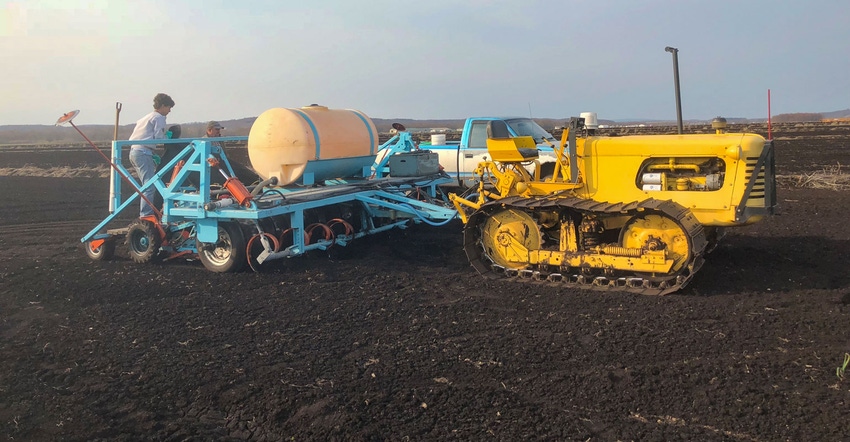
Primarily located in the Pacific Northwest, producers who specialize in large onions for the food service industry got slammed by a sudden drop in demand following the COVID-19 shutdown.
Prices for wholesale onions fell in March, but not by much, in part due to onions selling for 1980s-level prices in the U.S. even before COVID-19 came on the scene.
Pacific Northwest growers joined New York onion producers in midwinter calling for the government to investigate Canada for violating anti-dumping duties on the specialty crop when prices fell more than 50% from 2018 levels.
Chris Pawelski, an onion grower from New York, is skipping farming this year. He says he earned less than $12 per 50-pound onion bag last fall. He’s renting his fields this spring to neighbors, foregoing the high cost of labor to instead pay off credit card and USDA debt.
While he says borrowing more from USDA was an option, he’s uncertain of where markets will be within a couple years and wanted to pay off his backlog of bills instead.
“We were going to have to change with those prices. But the coronavirus is another problem,” says Pawelski, adding that when the dust settles one of his local friends believes he “could look like a genius” for sitting out 2020 as low transportation costs for cheaper Pacific Northwest onions has increased the bearish outlook for eastern growers.
He says that uncertainty around Canada and rumors of western onion producers switching to the smaller bulbs his region produces also makes this year even more volatile.
Trying something new
Pawelski had one tractor trailer of onions left by the time of the COVID-19 shutdown, and while the cost of transportation made selling it margin-negative, he was able to give most of them to a neighbor for free.
“I begged the local food banks to take it and they couldn’t because they had no room. They could only take one pallet. The rest went to my neighbor,” he says.
Pawelski sees an opportunity in supplying food directly to consumers, however. He’s starting a 1-acre garden to sell his produce, along with his neighbor’s onion harvests, directly to city dwellers. His farm is located within an hour’s drive of New York City.
“We're going to grow a number of items that we can freeze, like corn, string beans and such. And we're going to see about growing butternut squash and some other items that might be good for shipping,” he says, concluding that it’s all an experiment, but one drawn up as he got a flood of demand from his social media accounts.
Success stories from other wholesale specialty crop producers diversifying into direct-to-consumer marketing amid the corona virus pandemic abound, helping to further support his case that his farm will survive. Merchandise carrying the “Ornery Onion” label will help as well.
Pawelski still worries about labor. While he and his wife, Eve, manage the garden themselves, they will face new overtime requirements from the state of New York and uncertainty over further regulation.
“I told my state senator, I said to her, ‘I have no problem with $15 an hour, overtime, that’s great. But where’s the money tree?’” he says, harkening back to one of his first interviews on his family farm in 1996 with CBS News covering heightened regulations on the housing of migrant workers. “Pay me more money for my onions and I can pay more for my workers.”
Keating is the field editor for Prairie Farmer magazine, a Farm Progress publication.
About the Author(s)
You May Also Like




